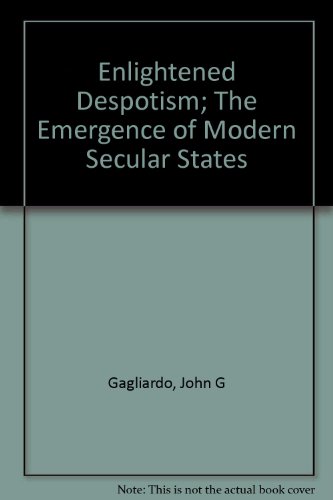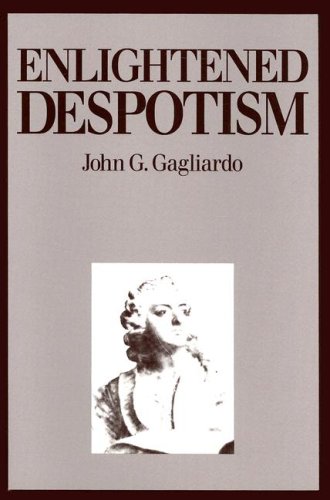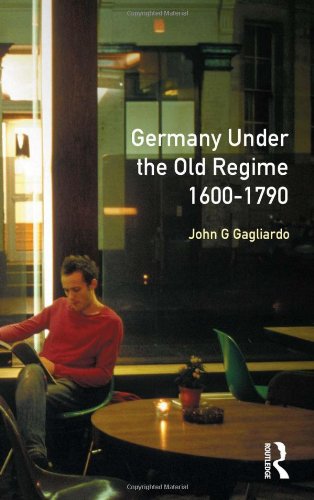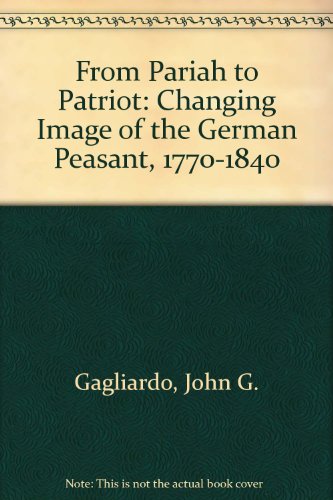Background
Gagliardo, John Garver was born on August 13, 1933 in Chicago, Illinois, United States. Son of Domenico and Ruth Jane (Garver) Gagliardo.


(A well-crafted, brief history by John Gagliardo provides ...)
A well-crafted, brief history by John Gagliardo provides analysis and interpretation of the three decades of European history generally called the Age of Enlightend Despotism. After a survey of the origin of the term and scholarly attempts to decide its meaning, a discussion of the Enlightenment provides the background for the author's investigation of the reforms of Frederick the Great, Joseph II, Catherine II, and other figures of this epoch.
http://www.amazon.com/gp/product/B0006BQI04/?tag=2022091-20

(A well-crafted, brief history by John Gagliardo provides ...)
A well-crafted, brief history by John Gagliardo provides analysis and interpretation of the three decades of European history generally called the Age of Enlightend Despotism. After a survey of the origin of the term and scholarly attempts to decide its meaning, a discussion of the Enlightenment provides the background for the author's investigation of the reforms of Frederick the Great, Joseph II, Catherine II, and other figures of this epoch.
http://www.amazon.com/gp/product/088295735X/?tag=2022091-20

(German history in the seventeenth and eighteenth centurie...)
German history in the seventeenth and eighteenth centuries is notoriously inaccessible to non-specialists. When other European countries were well on the way to becoming nation states, Germany remained frozen as a territorially-fragmented, politically and religiously-divided society. The achievement of this major contribution to the new History of Germany is to do justice to the variety and multiplicity of the period without foundering under the wealth of information it conveys.
http://www.amazon.com/gp/product/0582491061/?tag=2022091-20

(Until late in the eighteenth century, the peasantry of th...)
Until late in the eighteenth century, the peasantry of the German states had been dismissed contemptuously by the aristocracy and middle classes as brutish and virtually subhuman. With the advent of organized movements for peasant emancipation and agrarian reform, however, many German writers and publicists began also to reassess the role of the peasant in society. Within less than a century, the public image of the German peasant had been completely changed. Where formerly he had been scorned as untermenschlich, by 1840 he was firmly established in the public mind as an embodiment of the highest national virtues―a patriotic citizen with special qualities of singular importance to the fatherland. Mr. Gagliardo's study is a suggestive inquiry into the origins and development of a modern rural ideology and its relationship to German doctrines of nationality.
http://www.amazon.com/gp/product/0813111870/?tag=2022091-20
Gagliardo, John Garver was born on August 13, 1933 in Chicago, Illinois, United States. Son of Domenico and Ruth Jane (Garver) Gagliardo.
Bachelor, University Kansas, 1954. Master of Arts, Yale University, 1957. Doctor of Philosophy, Yale University, 1962.
Instructor, assistant professor of history, Amherst (Massachusetts) College, 1960-1965; assistant professor, associate professor of history, University of Illinois, Chicago, 1965-1968; associate professor of history, Boston University, 1968-1970; professor of history, Boston University, since 1970. Associate director Center International Relations, 1982-1987.
(Until late in the eighteenth century, the peasantry of th...)
(Until late in the eighteenth century, the peasantry of th...)
(A well-crafted, brief history by John Gagliardo provides ...)
(A well-crafted, brief history by John Gagliardo provides ...)
(German history in the seventeenth and eighteenth centurie...)
Member American Association of University Professors, American History Association, American Association German Studies, New England History Association (president 1974-1975).
